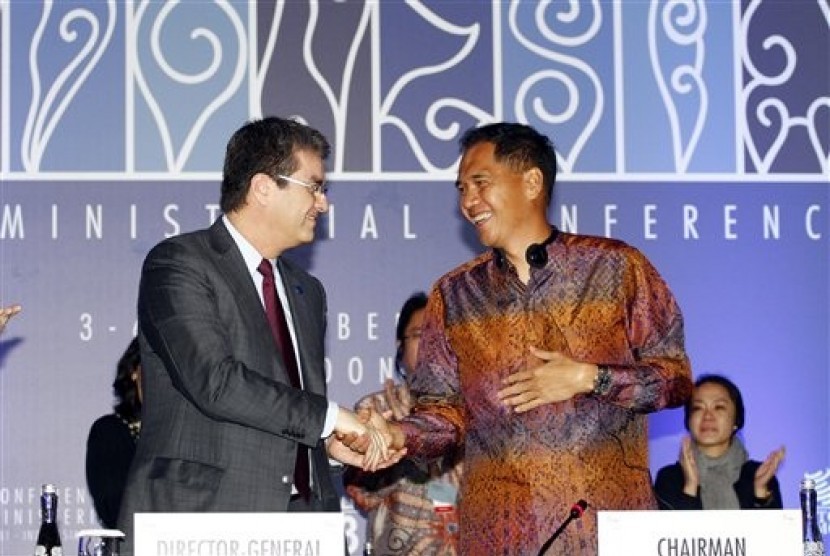REPUBLIKA.CO.ID, SURABAYA - President Soesilo Bambang Yudhoyono expressed his appreciation for the agreement on the "Bali Package" made at the 9th World Trade Organization ministerial meeting in Bali.
"Thank God the Bali Package was finally agreed to this afternoon, following tough negotiations yesterday," he said at the Naval Academy, before meeting with the CEO of Shell on Saturday.
"A new good beginning. There must be flexibility, give and take, in the next negotiations. What is important is that developed countries, developing countries, as well as farmers, are cared for under a trade system that is fair and just. Not only free trade, but also free and fair trade. That is our ideology," he said.
Presidential special aide for economic affairs and development Firmanzah, meanwhile, said the Bali Package agreement was expected to increase world trade by 1 trillion USD to help restore the economy. After long negotiations, the 9th WTO ministerial meeting was able to develop the Bali Package containing three main points covering trade facilitation, agriculture and least developed countries.
"After long negotiations we, ministers from the WTO members, agreed to give flexibility to developing countries to implement food security programs," Indonesian trade minister Gita Wirjawan said during his closing speech at the meeting on Saturday.
Gita noted that, finally, ministers agreed to changes in the WTO agreement in the agriculture package.
"The provision of trade facilitation, which was first negotiated, is expected to be able to reduce trade costs to provide businesses with certainty," he said.
Gita said that would also be useful for other WTO members, including developing countries, to provide access to aid, and it would also improve trade systems and procedures in the countries concerned.
"The ones to benefit most are developing countries, as well as least developed countries, as access to goods and services has been opened for them to increase trade," he said.
Unlike the Doha Development Agenda, which sought to settle 19 negotiating issues, the Bali Package only had three, he said. The fight to pass the Bali Package was initially hampered by India's opposing it and insistence that an interim solution was not the right step, because it was related to fundamental issues, such as food stock security.
India finally agreed to the Bali Package, which states that WTO members agree to use interim mechanisms to conduct negotiations to produce a permanent solution that would be adopted in the 11th WTO ministerial meeting, or in the next four years.


